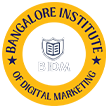
In the digital era, generating high-quality leads has become the backbone of business growth. Every company, from startups to established enterprises, is looking for strategies to attract potential customers online and convert them into paying clients. Digital marketing offers a plethora of tools and tactics to accomplish this, but understanding how to leverage them effectively is crucial. This guide will provide a deep dive into proven methods for generating leads, actionable strategies, and the tools you need to implement them.
Table of Contents
Understanding Leads in Digital Marketing
Before diving into lead generation strategies, it’s important to understand what a lead is in the context of digital marketing. A lead is a person who has shown interest in your product or service, typically by providing contact information like an email address, phone number, or social media handle. The goal is to nurture these leads through the buyer’s journey until they become loyal customers.
Not all leads are created equal. They can be classified into:
- Marketing Qualified Leads (MQLs): Prospects who have engaged with your marketing content but are not yet ready to make a purchase.
- Sales Qualified Leads (SQLs): Prospects who are ready for a direct sales conversation, showing strong purchase intent.
- Product Qualified Leads (PQLs): Users who have experienced your product, often through a free trial or demo, and are likely to convert.
Identifying the right type of lead is essential to ensure that your marketing efforts are targeting prospects who are most likely to convert.

Importance of Lead Generation in Business Growth
Lead generation is more than just attracting visitors to your website. It’s about creating meaningful interactions that convert into business opportunities. Here’s why lead generation is critical:
- Sustains Revenue Flow: Consistent lead generation ensures a steady pipeline of potential customers, which directly impacts revenue.
- Improves Marketing ROI: By targeting high-quality leads, businesses can reduce wasted marketing spend and achieve better returns.
- Builds Brand Authority: Engaging content and campaigns help establish your brand as a trusted authority in your niche.
- Supports Business Scaling: A strong lead generation strategy allows companies to expand without constantly seeking new clients manually.
Key Channels for Generating Leads
Digital marketing provides multiple channels to capture and nurture leads. Here’s a breakdown of the most effective ones:
Search Engine Optimization (SEO)
SEO is the foundation of online visibility. By optimizing your website for relevant keywords, you can attract organic traffic that is actively searching for your products or services. Lead generation through SEO involves creating high-value content that answers prospects’ queries and encourages them to take action.
Tips for SEO-driven Lead Generation:
- Focus on long-tail keywords with clear commercial intent.
- Create in-depth blog posts, guides, and resources that address specific pain points.
- Optimize landing pages with clear calls-to-action (CTAs) and lead capture forms.
- Implement schema markup to enhance search result listings and improve click-through rates.
Pay-Per-Click Advertising (PPC)
PPC campaigns, such as Google Ads or Bing Ads, allow you to target potential leads who are actively searching for solutions. Unlike organic SEO, PPC offers immediate visibility and the ability to test different ad creatives, landing pages, and audience segments.
Effective PPC Lead Generation Strategies:
- Use compelling ad copy that highlights your unique selling proposition.
- Direct traffic to optimized landing pages with clear conversion goals.
- Implement retargeting campaigns to capture leads who previously visited your site but didn’t convert.
- Monitor and adjust bids, keywords, and ad placements to maximize ROI.
Social Media Marketing
Social media platforms like Facebook, LinkedIn, Instagram, and Twitter provide unique opportunities for lead generation. Each platform has distinct targeting capabilities, allowing marketers to reach specific demographics, interests, and behaviors.
Social Media Lead Generation Tactics:
- Use lead generation ads with built-in forms on platforms like Facebook and LinkedIn.
- Share valuable content that encourages engagement and directs followers to landing pages.
- Leverage social proof through reviews, testimonials, and user-generated content.
- Host live sessions, webinars, or interactive polls to capture leads’ interest.
Content Marketing
Content is king when it comes to attracting and nurturing leads. By providing informative, actionable, and relevant content, you can build trust and guide prospects through the buying journey.
Content Marketing Strategies for Leads:
- Create lead magnets like eBooks, checklists, and templates.
- Use gated content where users provide contact information to access premium resources.
- Publish case studies and success stories to demonstrate your expertise.
- Incorporate clear CTAs within content to encourage downloads, sign-ups, or consultations.
Email Marketing
Email marketing remains one of the most effective ways to nurture leads. Collecting email addresses through lead capture forms, landing pages, or content downloads allows you to communicate directly with prospects.
Email Lead Generation Tips:
- Segment your email list based on interests, behavior, and demographics.
- Craft personalized and targeted email campaigns.
- Use automated drip campaigns to nurture leads over time.
- Include strong CTAs directing recipients to offers, resources, or consultations.
Webinars and Online Events
Hosting webinars or virtual events can attract highly qualified leads, especially in B2B marketing. These events provide opportunities to demonstrate expertise and engage with potential clients directly.
Best Practices for Webinars:
- Promote webinars through email campaigns, social media, and paid ads.
- Offer exclusive content or insights as an incentive to register.
- Engage attendees with interactive Q&A sessions and polls.
- Follow up with participants through personalized emails and offers.
Influencer Marketing
Collaborating with industry influencers can help generate leads by leveraging their audience and credibility. Influencers can create content that directs their followers to your landing pages or lead magnets.
Influencer Lead Generation Strategies:
- Partner with influencers whose audience aligns with your target market.
- Create authentic campaigns that showcase your product or service.
- Track leads through unique links, codes, or landing pages.
- Measure performance to understand ROI and optimize future collaborations.
Affiliate and Referral Marketing
Encouraging your existing customers or affiliates to refer new leads can be highly effective. Referral programs incentivize your network to share your brand with qualified prospects.
Effective Referral Marketing Tactics:
- Offer discounts, rewards, or incentives for successful referrals.
- Simplify the referral process with easy-to-share links or codes.
- Highlight referral success stories to encourage participation.
- Track referrals to optimize the program and improve lead quality.
Optimizing Landing Pages for Lead Conversion
Attracting traffic is only half the battle; converting visitors into leads requires highly optimized landing pages. A landing page should focus on a single goal: capturing contact information.
Key Elements of High-Converting Landing Pages:
- Clear Headline: Communicate the value proposition immediately.
- Engaging Copy: Focus on benefits, not just features.
- Strong CTA: Use action-oriented language like “Download Now” or “Get Your Free Guide.”
- Minimal Distractions: Keep the page focused on the conversion goal.
- Trust Signals: Include testimonials, reviews, or security badges.
- Responsive Design: Ensure the page looks and works well on all devices.
- Fast Loading Speed: Reduce bounce rates by optimizing page performance.
Leveraging Marketing Automation Tools
Marketing automation tools simplify the lead generation and nurturing process. They help track visitor behavior, segment audiences, and deliver timely messages to prospects.
Popular Automation Tools and Their Benefits:
- HubSpot: For inbound marketing, CRM, and lead nurturing.
- Marketo: For B2B lead management and email marketing automation.
- ActiveCampaign: For personalized email campaigns and CRM integration.
- Mailchimp: For easy-to-use email marketing and automation.
Automation allows businesses to engage leads consistently, improving conversion rates and saving time.
Lead Nurturing Strategies
Generating leads is only the first step; nurturing them is critical to turning prospects into customers. Lead nurturing involves providing relevant content and personalized communication based on where a lead is in the buyer’s journey.
Effective Lead Nurturing Techniques:
- Segment leads based on behavior, interests, or demographics.
- Use personalized email sequences with tailored content.
- Implement retargeting campaigns to stay top-of-mind.
- Provide value through educational content, case studies, and demos.
- Track engagement and adjust campaigns based on analytics.
Measuring and Optimizing Lead Generation Campaigns
Data-driven decision-making is essential for improving lead generation performance. Measuring key metrics allows marketers to identify what’s working and what needs adjustment.
Important Metrics to Track:
- Conversion Rate: Percentage of visitors who become leads.
- Cost Per Lead (CPL): The amount spent to acquire each lead.
- Lead Quality: How likely leads are to convert into customers.
- Traffic Sources: Channels driving the most valuable leads.
- Engagement Metrics: Click-through rates, time on page, and form submissions.
Continuous optimization based on metrics ensures that marketing efforts are effective and ROI-focused.
Advanced Lead Generation Techniques
As digital marketing evolves, advanced techniques are emerging that can enhance lead generation:
- Chatbots and AI Assistants: Provide instant support and capture leads in real-time.
- Interactive Content: Quizzes, calculators, and assessments that engage users and capture information.
- Video Marketing: Explainer videos, tutorials, and product demos that drive engagement and leads.
- Personalization: Tailoring website content, emails, and ads to individual user behavior.
- Retargeting Campaigns: Re-engaging users who have shown interest but didn’t convert initially.
These techniques not only generate leads but also improve the overall user experience and engagement.
Common Lead Generation Mistakes to Avoid
Even experienced marketers can make mistakes that hinder lead generation efforts. Avoid these common pitfalls:
- Targeting a broad audience instead of a specific niche.
- Failing to optimize landing pages for conversions.
- Using generic content that doesn’t address user needs.
- Ignoring mobile optimization, leading to poor user experience.
- Not tracking metrics, resulting in wasted marketing spend.
- Overlooking follow-up and lead nurturing strategies.
Being aware of these mistakes and addressing them proactively can significantly improve lead generation outcomes.
The Future of Lead Generation in Digital Marketing
The digital marketing landscape is continuously evolving. Emerging trends are shaping how businesses generate and nurture leads:
- AI and Machine Learning: Advanced algorithms predict user behavior and personalize content at scale.
- Voice Search Optimization: Optimizing for voice queries to capture new lead opportunities.
- Privacy and Data Regulations: Adapting lead generation strategies to comply with GDPR, CCPA, and other privacy laws.
- Omnichannel Marketing: Creating seamless experiences across multiple touchpoints, from social media to email to in-person events.
- Predictive Analytics: Using data insights to anticipate leads’ needs and improve conversion rates.
Businesses that embrace these trends will stay ahead in the competitive digital landscape.
Conclusion
Generating leads in digital marketing is both an art and a science. It requires understanding your audience, leveraging the right channels, creating compelling content, and optimizing every touchpoint in the buyer’s journey. From SEO and PPC to social media, content marketing, and automation, the tools and strategies available today can transform how businesses attract and convert prospects. By implementing a structured, data-driven approach, businesses can consistently generate high-quality leads, build lasting relationships, and drive sustainable growth.



